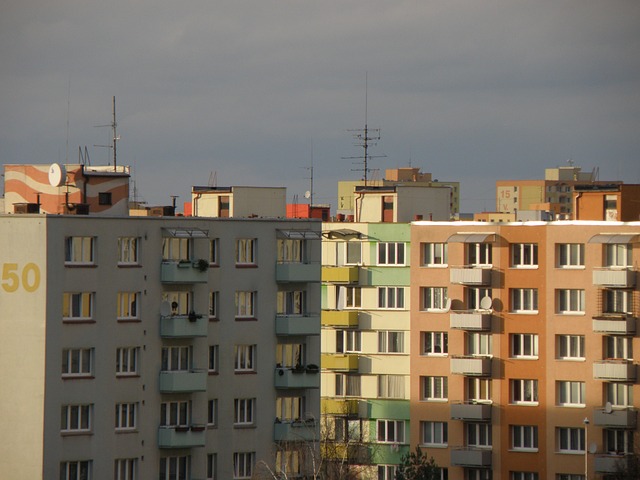
Seoul, South Korea – The number of victims officially recognized under South Korea's special law addressing "jeonse" rental fraud has surpassed 30,000, marking a significant milestone in the government's efforts to mitigate the devastating impact of these scams. As of May 1st, 2025, the cumulative count of individuals designated as jeonse fraud victims reached 30,400, following the recent approval of 860 additional cases. This surge in recognized victims comes amidst ongoing challenges in the nation's unique jeonse housing market, which has been severely destabilized by widespread fraudulent schemes.
The "Special Act on the Support for Victims of Jeonse Fraud," enacted in June 2023, has been the cornerstone of the government's response. The Ministry of Land, Infrastructure and Transport (MOLIT) announced that the Jeonse Fraud Victim Support Committee held three general meetings in May, deliberating on 1,926 cases and granting victim status to 860. Of these newly recognized victims, 759 were either new applications or reapplications, while 101 cases were approved after re-evaluation of previous rejections due to successful appeals.
However, not all applications are successful. The committee rejected 624 cases for failing to meet the eligibility criteria, excluded 246 cases where full deposit refunds were deemed possible, and dismissed 196 appeal cases that still did not meet the requirements. In total, since the law's inception, 30,400 individuals have been designated as jeonse fraud victims. The committee has also approved 997 requests for cooperation in delaying compulsory auctions and provided a total of 32,362 instances of support, including housing, financial, and legal assistance.
Understanding the Jeonse Crisis
The jeonse system is unique to South Korea, where tenants provide a large, interest-free lump-sum deposit (jeonse) to landlords instead of monthly rent. This deposit is returned at the end of the contract, typically two years. Landlords often invest or use this deposit, relying on rising property values or new jeonse contracts to repay the outgoing tenant.
The recent wave of fraud, often dubbed "villa king" scams, exploited this system, particularly in the multi-housing (villa and officetel) market. Scammers would purchase properties using borrowed money, often over-appraising their value, and then lease them through jeonse contracts, sometimes to multiple tenants or at inflated deposit rates. When property values plummeted or the landlords defaulted, tenants were left with no way to retrieve their large deposits, often their life savings. Many properties were also sold to "ghost landlords" with no financial means, leaving tenants with no recourse. The sheer scale of the fraud led to widespread homelessness and severe financial distress for tens of thousands of young adults and vulnerable populations.
LH's Role and Breakthrough in Illegal Structures
A significant development in victim support has been the amendment to the Jeonse Fraud Victim Support Act in November 2024. This revision enabled the Korea Land and Housing Corporation (LH) to actively purchase properties affected by jeonse fraud and offer them as public rental housing to victims. Previously, public housing agencies were prohibited from acquiring properties with building code violations, which constituted a substantial portion of the fraudulent cases.
Under the amended law, LH now accepts the assignment of priority purchase rights from victims, allowing the corporation to acquire the homes through auctions or other means. Once acquired, LH provides these homes to the victims as public rentals for up to 10 years, significantly easing their housing burden. Furthermore, the profit generated from the auction difference (the "auction premium") is converted into a security deposit for the tenant, minimizing the victim's financial loss, with prompt payment upon their departure.
As of May 21st, 11,733 properties were in preliminary discussions for LH purchase. Among these, 4,156 have undergone on-site inspections and committee reviews, receiving notices of potential acquisition. To date, 669 affected homes have been successfully acquired by LH.
Crucially, this month marked the first acquisition of 28 homes that previously had building code violations. This breakthrough was made possible by the legal amendment, which now allows public housing developers to purchase such properties after securing prior approval from local government architectural committees. This change broadens the scope of support, reaching more victims whose homes might have been excluded under previous regulations.
Continuing Support and Future Outlook
MOLIT's Director of Victim Support, Park Jin-hong, emphasized the government's commitment to expanding aid. "Following the amendment of the Jeonse Fraud Victim Support Act, we are now able to acquire even properties with building code violations after they undergo a legalization review," Park stated. "We will strive to promptly disseminate similar success stories to local governments to ensure comprehensive support for a wider range of victims."
Tenants struggling with jeonse fraud can apply for victim status through their local city or provincial governments. Once recognized by the committee, they gain access to tailored support programs through the Housing and Urban Guarantee Corporation (HUG) Jeonse Damage Support Center and its regional branches, encompassing housing, financial, and legal assistance.
While significant progress has been made in identifying victims and providing tangible support, the full recovery from the jeonse crisis is expected to be a long-term process. The government continues to refine its policies and crack down on perpetrators to prevent future occurrences, aiming to restore stability and trust in South Korea's unique rental market.
[Copyright (c) Global Economic Times. All Rights Reserved.]






























